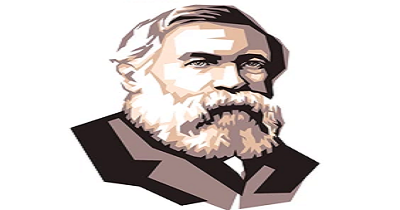The ideas and aspirations of the leaders of the proletariat are immortal!
January is the anniversary of the death of three of the most prominent leaders of the proletariat. They were scholars who, despite their short but useful lives, made tireless efforts to achieve the goals of the working class, and passionate people whose whole life was at the service of the working class. The communists neither believe in the cult of personality nor seek to adopt a religious attitude to the leaders of the proletariat; they merely want to commemorate the experiences and teachings of the proletarian pioneers and to apply their experiences and teachings in future battles.
When the overwhelming majority of social democrats joined the bourgeoisie camp in 1914 forever and turned workers into cannon fodder in the imperialist war, the Bolsheviks, and above all Lenin, defended the proletarian positions with the imperialist appraisal of the nature of war. With the advent of the labour movement, Lenin, with his April Theses, not only played a key role in the evolution of Bolshevism but also opened up a new horizon for class struggle. The Bolsheviks, with the slogan “All power to the Soviets”, not only offered a new perspective on world revolution but also transformed the concept of the dictatorship of the proletariat into everyday practice. In contrast to the reversals of the left of capital, Lenin was an internationalist and believed in world revolution. Lenin insisted that the Russian Revolution was only part of the revolutionary proletarian movement of the world, saying:
“The great honour of beginning the revolution has fallen to the Russian proletariat. But the Russian proletariat must not forget that its movement and revolution are only part of a world revolutionary proletarian movement, which in Germany, for example, is gaining momentum with every passing day. Only from this angle can we define our tasks.”[1]
Proletarian internationalism was a characteristic of the Bolsheviks, and it was in such a context that Lenin played a central role in the formation of the Third International in March 1919. But the Communist International, following the defeat of the tide of world revolution and the rise of Stalinism, went on the decline. The bourgeoisie has always tried and continues to pretend that Stalinism is an evolution of Lenin’s ideas and ideals. Bourgeois ideologists, whether through the mass media or through the educational system, resort to the dirty lie that any attempt to overthrow capitalism will lead to Stalinism. Stalinism celebrated its victory by massacring Lenin’s closest comrades and, most importantly by inverting Lenin’s revolutionary ideas, on the ruins of the October Revolution. But Lenin’s name is tied to the workers’ councils, to the Marxist concept of revolution, etc. Lenin is the great thinker of the proletariat in the living class battles.
On 15 January 1919, two proletarian leaders, Rosa Luxemburg and Karl Liebknecht, both aged 47, were massacred by the social democrats and Gustav Noske. Prior to that, Luxemburg was re-imprisoned in 1916, where she remained until the end of World War I. She was still in prison when the German Revolution began. Following the end of war, she was released on 8 November 1918 and rushed to Berlin, the heart of the German Revolution. In November 1918, the German bourgeoisie dissolved the workers’ councils, and the struggles of workers and soldiers were trodden in the soil and blood. In December 1918, the German Communist Party was founded by members of the Spartacist League. The bloodhounds were hunting the leaders of the proletariat. Hundreds of workers were killed at the heart of Europe during the repression of workers. Luxemburg was in the Red Flag newspaper office, which she did not want to leave, but she was eventually forced to hide by her comrades. Subsequently, the criminals persuaded people to lodge Luxemburg and Liebknecht and demand the killing of the leaders in posters installed on Berlin walls. The theme of the posters was clear:
“If you want peace, work and bread, kill Rosa Luxemburg and Karl Liebknecht.”
Finally, the location of their hiding place leaked out. On the night of 15 January 1919, five members of the armed bourgeois vigilante committee of the well-to-do district of Wilmeersdorfin Berlin, kidnapped Luxemburg and Liebknecht. The criminals did not surrender their captives to the police, but instead took them to the luxurious Eden Hotel, where the Guards Cavalry Rifle Division had recently established its new headquarters. The criminals were extremely afraid of their captives; with the possibility of any trial being ruled out, the leaders of the proletariat had to die a disgraceful death. Liebknecht was shot after being beaten, although the criminals said he was shot when he tried to flee. They also beat Luxemburg with a gun then shot her in the head and dumped her body in a canal. The bourgeois press wrote that Liebknecht had been shot while on the run and that Luxemburg had been killed by one of the mobs. Noske personally signed the acquittal of the officers involved in the assassination of the leaders of the proletariat. Waldemar Pabst, the head of the Cavalry Division who ordered the killings, later served in the Nazi regime and subsequently in the Federal Republic. Years later, he spoke of the importance of what he had done, namely, the suppression of the German Revolution and consequently the salvation of capitalism, which in turn condemned the German people:
“These German idiots should drop to their knees and thank Noske and me, streets and squares should be called after us!”[2]
The assassination of these revolutionaries, in particular, Rosa Luxemburg, dealt irreparable blows to the labour movement and the advance of world revolution. The German Revolution lost its pioneers and its thinkers. Unfortunately, the consequences were intensely heavy and painful. On the one hand, the German bourgeoisie had learned from the experience of the Russian Revolution, and then turned on the proletariat in Germany: on the other hand, German communists shuddered at cutting their umbilical cord from the dead body of social democracy and delayed the formation of a vanguard party of the proletariat, all of which paved the way for the defeat of the German Revolution. This defeat, in turn, paved the way for the defeat of world revolution.
Rosa Luxemburg was a red star who shone in the proletarian political milieu. Although those civilized barbarians, who called themselves democrats, murdered her in the heart of Europe, this source of inspiration for the proletariat, as well as her teachings in particular on the development of capitalism, the concept of imperialism, the national question etc., is still alive. Contrary to the wishes of the killers of this proletariat leader, she is alive in class battles. The spectre of Rosa Luxemburg is still haunting us. In her last essay, written under the conditions of repression in relation to the order of capital, she said:
“Order prevails in Berlin!” You foolish lackeys! Your ‘order’ is built on sand. Tomorrow the revolution will ‘rise up again, clashing its weapons,’ and to your horror it will proclaim with trumpets blazing:
I was, I am, I shall be!”
M. Jahangiry
12 January 2020
Notes:
[1] Speech Delivered at the Opening of the Conference April 24
[2] http://en.internationalism.org/ir/2009/137/germany-1918-19-Noske-to-Hitler















